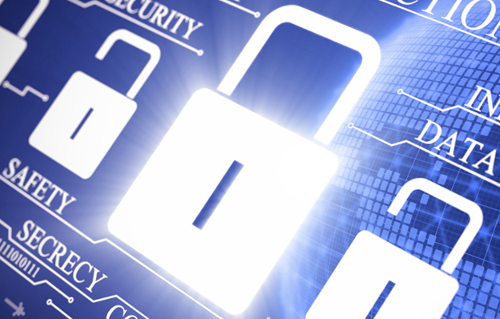
Web security for online businesses is not very well understood by many. The influx of content managing systems has led to a lot of online presence that is confused about how online security works. Some people who use these CMS do not know what web security is and how to implement it.
Can Online Business Be Secure?
No website is 100% foolproof, but with the following 15 guidelines, you can improve security and reduce instances of a data breach through hacking. Here are our tips for secure web application development.
1. Update Regularly
Patching and updating your computer regularly is a step towards a safe online business. Yes, you can install all these fancy software, but they will do you no good if they are not regularly updated. Many people fail to realize that your security software is only as good as its recent update.
Although security applications are not 100% breach-proof, regular updates facilitate a safer user environment. The update reports show the loopholes that the programmer has fixed.
2. Host Sites Separately
Hosting a single site to a server means that one WordPress install or plugin may be a target to a hacker. On the other hand, hosting several websites on the same server may mean multiple target centers within the server. When a worm infects a single site, this might exponentially spread to other sites.
This means that if you host 5 sites on a single server, all 5 sites can be hacked simultaneously once access to one site is established. Even worse, cleaning up such a mess is time-consuming and cumbersome as the websites can re-infest each other in an endless loop.
3. Strong Passwords
Weak passwords are clear indicators that your website will be hacked at some point. Strong root passwords will protect your website from unauthorized access. It is worrying to see how lightly this issue is implemented; in most cases, the CMS platforms suggest the name admin for a username. Many people go with this without even changing it to a unique username. Common usernames and passwords are easily hacked. A good password for online accounts should be unique, complex, and long.
4. Monitor User Access
A "least privileged" system should be employed for a site with multiple user logins. How does this works? When a user requires permission to work on a job, escalated access should be granted to them depending on the task being carried out, and when the task is over, the access is limited. This minimizes mistakes and helps to cut down on instances of compromised accounts. Rogue users can now be monitored and dealt with whenever necessary.
5. Change Default CMS Settings
There are those settings that come with any CMS software. If you run your site using these settings, you set yourself up for a hack or associated security breach. Automated hack attacks utilize basic CMS settings that users often underlook. To be secure, change the default settings on your CMS platform before running the site.
6. Extension
The extension you use for your website might be your business's cornerstone or downfall. Selecting the right extension is a prerequisite to secure web application development. Whenever installing extensions, always confirm the date of their last update. Also, the age of an extension matters a lot in web security, as an old and outdated extension may not respond well to new attacks.
7. Back Up Your Data
Just imagine your website being hacked! Bad news. This can get worse if your data has not been backed up. Don't also forget that data loss can occur from human error or hardware failure. These facts prove you can never be too careful when backing up data. The responsibility of backing up your data is solely yours, not the hosting company or graphic designer. Backing your data up automatically is the best solution to this.
8. Use HTTPS
SSL certificates can secure more than one section of your website. Traditionally this was only localized to the payment section, but now securing the entire website with an SSL certificate is a thing. Once you buy the certificate, you can install it, check its validation, and make all other necessary adjustments, such as editing internal links.
9. File Permissions
File permission defines what can be done on a file. There are 3 user types: owner (creator of the content), group, and public. Any user can be assigned either or all of the file permissions. Essentially, there are 3 file permissions:
- Read-only – the user is only able to view file content.
- Write – the user can view and edit file content.
- Execute – the user can run the program file or script.
10. Server Configuration Files
It is paramount for you to know your server configuration files. These files are powerful as they enable you to execute server rules, including commands to improve your website security.
- Apache servers - .htaccess.
- Nginx servers – nginx.conf.
- Microsoft servers – web.config.
11. Install a Firewall
To have an adequately protected network, a firewall is a must. There is no second thought for the firewall that protects your network by regulating the traffic flowing in and out of your business.
12. Secure Your Devices
You should well secure both your PC and mobile devices. In the current times, losing a mobile phone can mean a loss of valuable company data. Encrypting your devices and password to secure your PC is a step towards web security.
13. Never Hold Client Card Data
You may be liable to hefty fines when such delicate customer data is penetrated. The best way to avoid this is to ensure that all your clients' credit card information is handled by a 3rd party application specifically designed for such delicate data. We have the likes of PayPal that can easily handle the data for you with maximum security.
14. Educate Your Employees
Educating employees on safe browsing habits and proactive defense is crucial to any online business. The employees need to understand how valuable the company data is, and they should protect it at all times. It's often difficult to protect end-users against themselves, so the best thing to do is to educate your staff on the importance of web security.
15. Remote Monitoring Services
Many 3rd party monitoring services offer a broad range of IT solutions to safeguard your online business. Some of them are critical to every online business. It is essential to implement services like:
- Vulnerability monitoring – Scans your server and firewalls for more than 60k security hitches and exploits and provides you with helpful information and recommendations on making the servers more secure.
- Web transaction monitoring - Ensures all web transactions run smoothly
- Website monitoring - monitors whether the website delivers the proper page content to the users and looks for any unauthorized content changes.
Web security is an essential part of online business. It is a good practice to implement the above rules and closely monitor every aspect of them.


 Copyright 2000-2026, WebSitePulse. All rights reserved.
Copyright 2000-2026, WebSitePulse. All rights reserved.